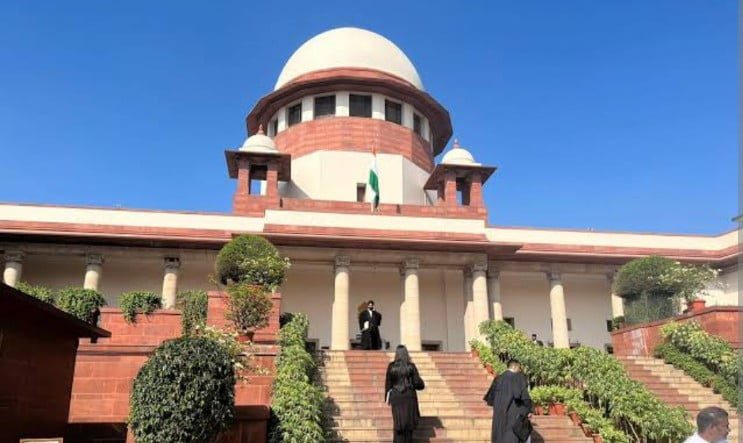Crucial Ruling: Supreme Court asserts States lack authority to modify Scheduled Castes List, emphasizing Parliament’s exclusive power.
The Supreme Court of India has delivered a decisive verdict, unequivocally declaring that States do not possess the authority to alter the Scheduled Castes List as stipulated under Article 341 of the Constitution. This landmark judgment underscores the Parliament’s sole prerogative in making any inclusions or exclusions in the said list.
Constitutional Clarity:
A bench comprising Justices Vikram Nath and P.K. Mishra firmly established that any modifications to the Scheduled Castes List can only be effected through legislation enacted by Parliament, thereby rejecting any alternative means or methods.
Bihar Notification Challenged:
The court’s pronouncement emerged in response to a challenge by Dr. Bhim Rao Ambedkar Vichar Manch, Patna, against a 2015 notification issued by the Bihar government. The notification, based on a State Backward Commission recommendation, sought to merge the Extremely Backward Class of Tanti-Tantwa with the Scheduled Caste of Pan/Sawasi. This merger would have granted the Tanti-Tantwa community access to the benefits accorded to Scheduled Castes.
State’s Action Deemed Illegal:
Justice Nath, who authored the judgment, categorically declared the 2015 resolution as “patently illegal and erroneous.” The court concluded that the State government had overstepped its boundaries and lacked the authority to modify the Scheduled Castes List, a matter exclusively under Parliament’s purview.
Jurisdictional Limitations:
The apex court further highlighted that the State Backward Commission did not have the jurisdiction to recommend merging any caste or group with a notified Scheduled Caste community. Even if such a recommendation were made, the court emphasized that the State was obligated to refrain from implementing it due to constitutional constraints.
Constitutional Provisions:
Article 341(1) empowers the President, in consultation with the State Governor, to specify through public notification the castes, races, or tribes deemed as Scheduled Castes in relation to a State or Union Territory. Article 341(2) unequivocally states that any amendments or alterations to the President’s List can only be made through a law passed by Parliament, excluding any other mode of modification.
Parliament’s Exclusive Domain:
The Supreme Court underscored the implication of these provisions, stating that neither the Central government nor the President can make any changes to the notification specifying Scheduled Castes for States or Union Territories. Such modifications remain the exclusive domain of Parliament through legislative action.
Key Learning Points:
| Point | Description |
|---|---|
| Constitutional Authority: | Only Parliament has the power to modify the Scheduled Castes List under Article 341. |
| State’s Limited Role: | States cannot alter the list through notifications or recommendations from State Backward Commissions. |
| Legislative Process: | Changes to the list can only be made through laws enacted by Parliament. |
| Judicial Review: | The Supreme Court plays a crucial role in upholding the constitutional provisions and ensuring adherence to the law. |
| Protection of Scheduled Castes: | The judgment safeguards the interests of Scheduled Castes by preventing arbitrary modifications to the list. |
Summary: In a significant ruling, the Supreme Court of India has reaffirmed the Parliament’s exclusive authority to modify the Scheduled Castes List. The court’s verdict, which came in response to a challenge against a Bihar government notification, emphasizes the constitutional provisions that restrict States from altering the list through any means other than parliamentary legislation. This judgment not only upholds the integrity of the Scheduled Castes List but also reinforces the principle of separation of powers between the judiciary, legislature, and executive.
Soumya Smruti Sahoo is a seasoned journalist with extensive experience in both international and Indian news writing. With a sharp analytical mind and a dedication to uncovering the truth, Soumya has built a reputation for delivering in-depth, well-researched articles that provide readers with a clear understanding of complex global and domestic issues. Her work reflects a deep commitment to journalistic integrity, making her a trusted source for accurate and insightful news coverage.



